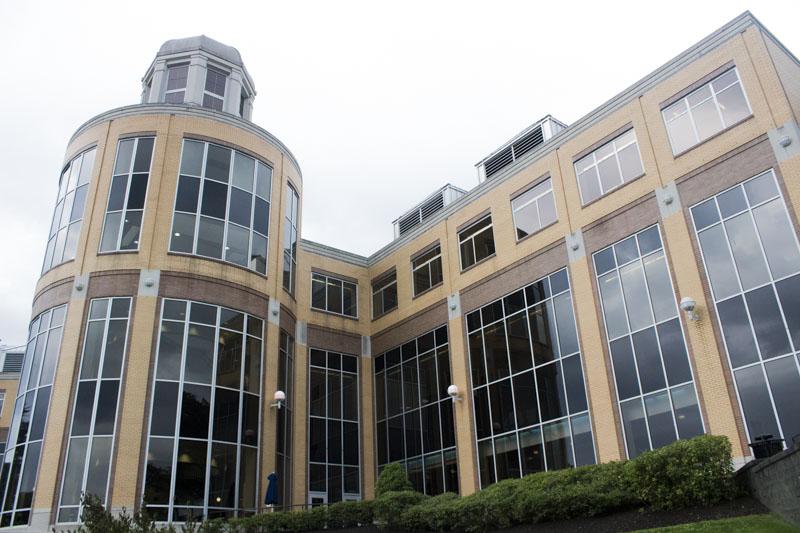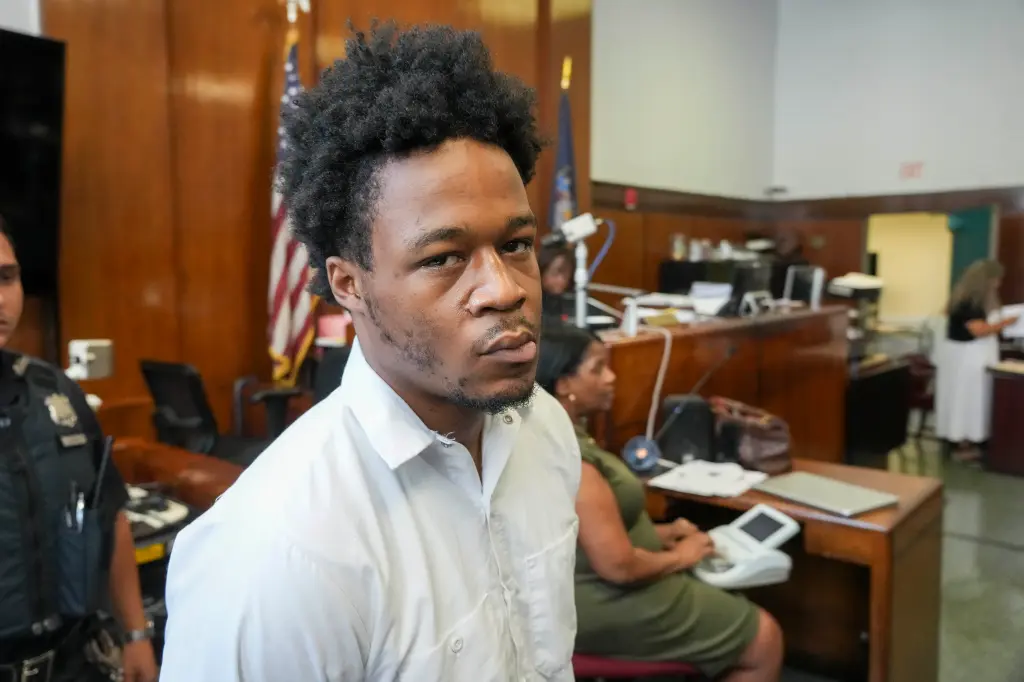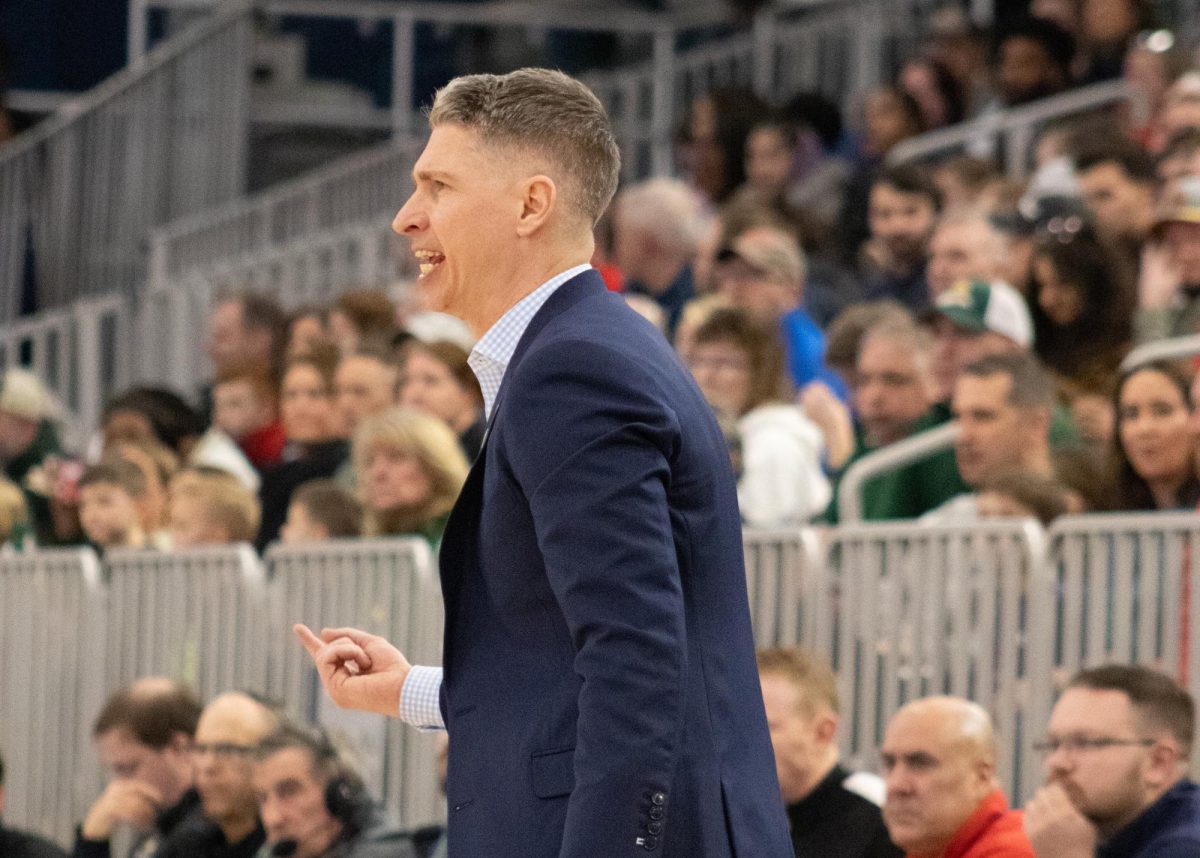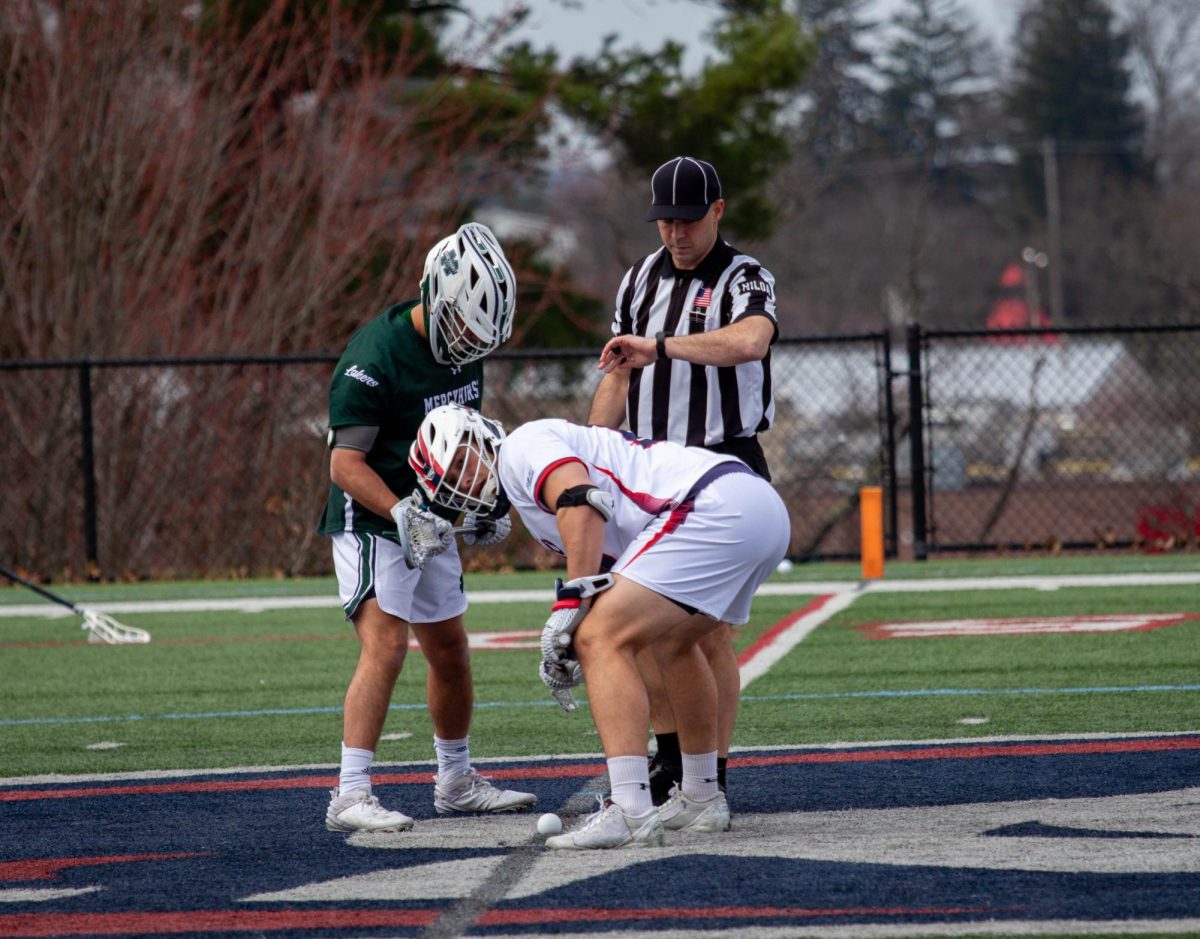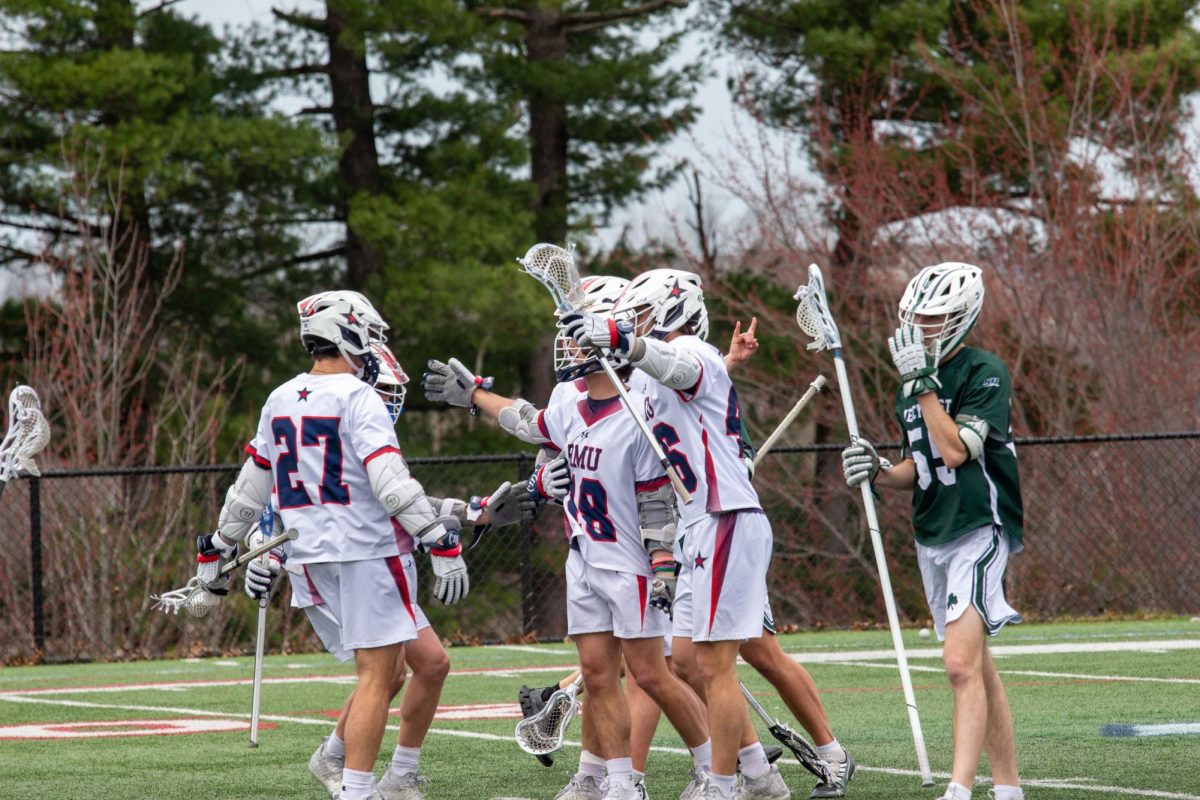Members of the Robert Morris University faculty expressed their concern regarding the new university website and the low enrollment figures during the 2018 fall town hall.
University president Dr. Christopher B. Howard headlined the event in the Westinghouse room at Yorktown Hall where he discussed the state of the university and answered questions from the faculty.
The president discussed numerous things during the event. These included notable topics such as the university not meeting their quota for incoming students. As a result, the decision was made to delay pay increases for faculty members and slow down hiring.
“Last month we welcomed the class of 2022,” said Dr. Howard during his speech to faculty. “And while we are doing better than many of our peers, we did not do as well this fall as we would have liked.”
The president mentioned that the university will reconsider pay raises once they see the spring retention rates for next semester.
“I know how hard you work and (this] is unwelcome news,” said Dr. Howard as he addressed the faculty.
To combat the low enrollment rates and to increase retention rates for the spring semester, Dr. Howard unveiled new analytic tools in order to better identify at-risk students in order to help retain more students and boost enrollment numbers and graduation rates.
In a program called Colonial Campus, Dr. Howard showed off the new technology that will allow professors to see at a macro-level how effective Robert Morris is assisting at-risk students.
“We are not going to settle for lower enrollment,” said Dr. Howard. “We are not going to sit back and manage the climb.”
Dr. Howard mentioned additional efforts as well, all aimed towards helping the school’s low enrollment numbers.
Wendy Beckemeyer, vice president of enrollment, discussed the Public Price Match program which was announced earlier this month as an effort meant to compete with University of Pittsburgh and Penn State.
Another effort to retain students came in the renovation of traditional dorm rooms. Dr. Howard highlighted Hamilton Hall’s brand-new lounge, discussing how keeping students living on campus is another proven way to improve retention rates.
Another one of Dr. Howard’s initiatives highlighted at the town hall was marketing the university within the Pittsburgh community and creating more strategic partnerships within the Pittsburgh business community.
Dr. Howard called upon Dr. Derya Jacobs, the vice president of corporate relations, to speak on these partnerships.
Dr. Jacobs discussed how the university wanted to create more meaningful partnerships within the community that helped both the businesses and the university.
Jacobs mentioned how RMU had attributes that were different from inner city schools such as Duquesne, University of Pittsburgh and Point Park that businesses were interested in.
“In the community, we discovered that there’s an unmet need that no other institution is filling,” said Dr. Jacobs.
Jacobs highlighted a number of notable partnerships, such as the Pittsburgh Penguins.
But the biggest controversy came during the time period for faculty questions.
Dr. Ann Jabro pushed President Howard as to whether the university was going to be making any decisions in terms of potential layoffs.
“We offered early retirement last year, and some of your colleagues took it and some didn’t,” said Howard. “We develop a series of defensive measures every year when we do our budgeting every year. And we have been more aggressive in implementing those defensive measures than we have been in the past.”
When asked once again by Dr. Jabro about the layoffs, Dr. Howard gave a less than confident answer.
“I don’t have specific plans right now. We’re going to end up taking a couple of studies to see where we are and let’s just see where those go,” said Dr. Howard.
The other main issue was first brought forth by Dr. Monica VanDieren, who passionately described how she and many of the faculty are not pleased with the new design of the RMU website which was launched back in June.
VanDieren discussed how the new website was designed without consultation of all of the staff and that there were glaring things that the site was missing.
VanDieren referenced how a colleague or hers in Israel could not find any of the pertinent work and research that VanDieren has done because of the design of the new website.
Jonathan Potts, the vice president of marketing and public relations, was called upon by Dr. Howard to defend the design of the new site. Both Potts and Howard defended the strong need for a new website in order to be more competitive in attracting students. The emphasis from Potts and Dr. Howard was that these decisions were made from a marketing perspective and that the purpose of this website is for the use of prospective students and their parents.
Dr. Howard finished the debate by stating that the website would continue to be a topic of discussion as the faculty and the administration attempt to find a middle ground.



